Published
- 01:00 am

Alexander Filshie has been appointed as Chief Financial Officer Designate at Earthport plc (AIM: EPO.L) with immediate effect. Alexander will also join the Board as an Executive Director, subject to regulatory approvals.
Alexander brings over 25 years of experience as a senior finance executive to Earthport. His career has encompassed leadership positions including Chief Financial Officer at CLS Group, the world’s core foreign exchange (FX) settlement system. CLS handles USD 1.55 trillion a day, over half of the world’s FX volume. Prior to his tenure at CLS, Alexander was CFO and Head of Strategy, Africa and Middle East, at Barclays Bank. He has also held a number of senior positions at American Express International Inc.
Alexander has a track-record in financial planning, reporting, treasury, taxation, regulatory governance, capital raisings, acquisitions and restructurings. He has also delivered turnaround strategies for underperforming businesses, executed cost reduction and headcount restructuring whilst supporting revenue growth and improved profitability. He is a Fellow at the Institute of Chartered Accountants and also a member of Association of Corporate Treasurers.
Amanda Mesler, CEO of Earthport, said: "Alexander has an exceptional understanding of the currency and payment industries, coupled with deep knowledge of financial management at the most senior level at financial services and technology companies. He has an impressive track record in executing complex financial controls which will help take Earthport to the next level of growth."
"Having previously worked for infrastructure providers, banks and payments companies, I have seen the inefficiencies of the cross-border payments system faced by customers from many sides,” commented Alexander Filshie. “That’s why I was attracted to Earthport’s mission of building an endto-end payments network to transform this complex system and give global commerce the innovative and efficient payments network it needs. In an ever globalising trade environment, Earthport has incredible growth potential and I’m looking forward to helping to realise that potential."
Related News
- 05:00 am

The insurance industry is entering an age of disruption and digital transformation. Bespoke products and personalized outreach will soon be the new norm, and insurance carriers will see pivotal changes powered by AI solutions.
With new technologies enabling both operational efficiency and a superior customer experience, from artificial intelligence to drones and mobile customer communication methods, we are proud to announce that nominations have opened in 2018 Insurance Nexus Canadian Awards. These awards aim to celebrate the carriers, individuals and technology partners who are successfully driving the implementation of advanced analytics and AI, as well as to inspire new innovations in insurance.
“The Insurance Nexus Canadian Awards celebrate innovation and technology adoption which are the most critical components of change, transformation, progress and ultimately, better outcomes for all stakeholders,” said Stephen Applebaum, Managing Partner of the Insurance Solutions Group. “The engagement we’ve received on the awards testifies to the critical nature of innovation, partnerships and technology-adoption in the Canadian insurance ecosystem.”
The awards are divided into two categories: ‘Canadian Insurance Carrier of the Year’ (acknowledges the insurance carrier who has made the biggest advances in implementing analytics and AI within their business) and ‘Canadian Insurance Innovator of the Year’ (given to the stand-out innovation partner of 2018). Previous awards winners include The Co-operators, Crawford & Company and Aviva Canada, the latter winning Insurance Carrier of the Year in 2017 for their work on embedding machine learning and AI in Robotic Process Automation (RPA) for real-time decision support. Initiatives that benefit both customer and insurer such as this are prime examples of the type of innovation the awards are designed to celebrate.
Nominations for the awards are open and can be made here: http://bit.ly/2mGeqXN, closing August 24th. The Finalists will be revealed on September 5th and the winners announced onsite at the Insurance AI Canada Summit (September 25-26, Toronto). The 2018 Insurance Nexus Canadian Awards are being held in concert with the Insurance Analytics Canada Summit 2018, Canada’s largest and foremost insurance analytics conference. For more information, visit the website: http://bit.ly/2OfxSHC
Related News
- 01:00 am
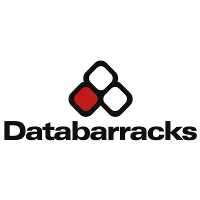
New data reveals the maturity of the financial sector in business continuity and operational resilience
Organisations – regardless of sector – should use the FCA & BoE’s recommendations to improve operational resilience. This is according to Peter Groucutt, managing director of Databarracks.
The FCA and BoE issued a discussion paper that aims to engage with the financial services industry and improve the operational resilience of firms and financial market infrastructures (FMIs). Commenting on the findings, Groucutt says: “The financial sector leads in business continuity best practice. It is well regulated and requires high levels of uptime. The best practices introduced by the sector are often taken and more widely adopted by other industries.
Our recent Data Health Check research which surveyed over 400 IT decision-makers revealed 64 per cent of financial firms have tested their disaster recovery processes in the last 12 months compared to only 47 per cent amongst other industries.
“Banks and FMIs have recently been in the headlines due to TSB’s problematic systems - upgrade and Visa’s network outage. The BoE and FCA have issued the paper to generate debate and understand what can be done to reduce operational disruption. But many of the challenges it highlights are broadly applicable beyond just the financial sector.
“All organisations are dealing with growing cyber incidents and cost pressures. All organisations have increased customer demands for accessibility and speed of transactions. All industries are facing disruption by AI and distributed ledger technologies.”
Groucutt continued: “The challenges and questions the BoE and FCA raise are relevant to all industries. The report provides sound advice for firms to take on board regardless of whatever industry they operate in.”
“Notably, setting board-approved impact tolerances is an excellent suggestion. This describes the amount of disruption a firm can tolerate and helps senior management prioritise their investment decisions preparing for incidents. This is fundamental to all good continuity planning; particularly as new technologies emerge, and customer demand for instant access for information intensifies. These tolerances are essential for defining how a business builds its operational practices. It’s something that needs to be regularly reviewed and tested as tolerances change.”
Groucutt continues: “Focusing on business services rather than systems is a good recommendation and one we strongly agree with. Designing your systems and processes on the assumption that there will be disruptions – but ensuring that you can continue to deliver business services is key.”
“It’s also pleasing to see the report highlight the increased concentration of risk due to a limited number of tech providers. This is particularly prevalent in the financial sector for payment systems, but again there are parallels for other industries and technologies. In cloud computing, for example, we’re reaching a state of oligopoly, with the market dominated by a small number of key players. For the end-user, it can lead to a heavy reliance on a single company. This poses a significant risk to your organisation. Yes, these public cloud services allow you to build resilience in by using multiple locations and regions, but you should also aim to limit single-supplier risk.”
Related News
- 05:00 am
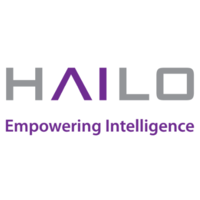
Breakthrough deep learning processor boosts processing power of autonomous vehicles, smart home appliances, cameras and TVs
Hailo, developers of a proprietary chip technology for deep learning on edge devices, is extending its efforts to work with technology and business partners in Japan and South Korea. Hailo's executives will participate in a delegation of Israeli mobility startups that will be visiting the two East Asian powerhouses at the end of July and into the first week of August. In Japan, Hailo will present its achievements and plans in front of 400 automotive industry executives at an event co-arranged by Azapa Corporation and the Israel-based Innovation Center Drive TLV. Additionally, senior Hailo executives led by the company's CEO, Orr Danon, will conduct business meetings with Japanese and Korean technology companies.
Hailo, established in early 2017, emerged out of stealth mode in June and announced that it had completed $12.5 million Series A funding round that will help the startup further develop its deep learning microprocessor, which will deliver datacenter processing capacity to edge devices. This latest funding round brings the total raised to date by the Tel Aviv-based company to $16 million.
Hailo's breakthrough deep learning processor, whose initial samples are expected to enter the market in H1 2019, will be able to run embedded AI applications on edge devices that are installed in autonomous vehicles, drones, and smart home appliances such as personal assistants, smart cameras and smart TVs, alongside IoT, AR and VR platforms, wearables and security products. The Hailo processor radically reduces size, power and cost, making it suitable for local processing of high-resolution sensory data in real time.
The automotive industry, one of Hailo's key markets, is undergoing a major disruption and is rapidly adopting Deep Learning methods to enable advanced driver assistance systems (ADAS) and autonomous driving applications that require sensing and processing of the environment. According to IC Insights, ICs used in automobiles and other vehicles are expected to generate global sales of $42.9 billion in 2021, compared to $22.9 billion in 2016. Existing general-purpose processor infrastructure cannot run compute-intensive deep learning algorithms necessary for these applications.
In early July, Hailo was named one of the 20 Most Promising Startups in Israel by the prestigious business publication TheMarker Magazine.
According to a market research by IDC, total spending on cognitive and AI systems in Asia Pacific (excluding Japan), has totaled $458.0 million in 2017 alone, reflecting an increase of 53.3% over 2016
South Korea ICT Ministry has recently published a national plan that aims to invest around 2.2 trillion won (around $2 billion) by 2022 in order to boost the country's AI R&D capabilities and transform the country into one of the world's top four AI powerhouses. As part of the strategy, South Korea is planning to establish six new AI research institutes.
In Japan, the Japanese government published its artificial intelligence technology strategy that details top areas for R&D, focusing on the themes of productivity, medical care and health, and mobility. The strategy also encourages collaboration between industry, government, and academia to advance AI research.
Related News
- 04:00 am

SatoshiPay (‘the Company’), at the vanguard of providing frictionless global micropayment infrastructure based on blockchain technology, initially to digital content creators, has received a €566,000 cash injection from serial technology/crypto investor Daniel Masters and announced its intention to IPO in London. Already backed by Axel Springer, one of Europe’s biggest media houses, as well as specialised funds including Blue Star Capital and KR1 and experienced business angels such as Jim Mellon, the Company is aiming to rapidly scale its micropayment technology and build on its existing media focussed clients.
SatoshiPay CEO Meinhard Benn said, “We are delighted to receive our investment from someone who truly understands the crypto and payments arena. Danny Masters, along with our existing investors have recognised that there is a huge opportunity in blockchain-based micropayments, particularly in the field of digital media content where publishers have a need for a commercial solution.”
SatoshiPay is transforming the market. It offers two key services, a widget that online publishers can use to monetise their content and an Application Programming Interface (‘API’) for third parties, which allows businesses to build services on top of its technology, extending the market reach and revenue base. Its client widget automatically installs a wallet directly in a user’s browser and allows paid access to premium content. The same wallet can be used over multiple websites, without the need to create individual user accounts for different content providers. The credits can be used on any SatoshiPay-enabled website, app, or device.
Meinhard continued, “In essence internet users can think of SatoshiPay as a digital “pocket change” wallet for the web, they can pay small amounts (starting from as little as 1p), for web content like articles, blog posts, music, podcasts and videos.”
SatoshiPay has already partnered with technology news site The Register for a micropayments trial to monetise selected content on its website. It also has partnerships for core infrastructure and services with blockchain provider Stellar Development Foundation, TEMPO Money Transfer and card payments company TransactWorld that assist with scalability, volatility solutions and payments on-ramping. It is targeting content providers through its network and offering, as it believes it possesses the solution to monetising digital content.
Meinhard continued, “So far, the micropayments haven’t achieved mainstream adoption due to bad usability and high transaction costs. With existing bank infrastructure payment service providers charging base fees of 10-30p per transaction plus a percentage, it makes it very difficult for digital vendors to maintain a viable micropayment business model. With SatoshiPay, the payment amounts start from as little as a fraction of a pence, enabling the Company to strategically position itself to take advantage of an estimated US$10 billion fee market.”
Mr Daniel Masters is a serial technology investor and co-founded the world’s first fully-regulated Bitcoin hedge fund, Global Advisors Bitcoin Investment Fund Plc ("GABI"). He is Executive Chairman at CoinShares, a company focused on delivering the most fit-for-purpose crypto investment vehicles; He also works with XBT Provider, the issuer of Europe’s only publicly traded Bitcoin and Ether securities.
Related News
- 05:00 am

EuroCCP, Europe’s leading equities clearinghouse, today announces the appointment of Cécile Nagel as Chief Executive Officer. Ms Nagel joins from the London Stock Exchange Group (LSEG) where she was most recently Head of LSE Markets Global Product Development and LSE Exchange Traded Products.
Ms Nagel joined LSEG in 2009 and has worked in a number of senior roles across the organisation including Head of Strategic Planning for the Group and Global Head of Equities and Commodities at LCH Group, LSEG’s multi-asset clearinghouse. Prior to LSEG, she worked at Oliver Wyman and the Financial Services Authority.
In November 2017, EuroCCP confirmed that Diana Chan, Ms Nagel’s predecessor, would hand over the management of the firm in the following year.
Jan Bart de Boer, chairman of EuroCCP’s supervisory board said: “We are delighted to have Cécile join as EuroCCP’s CEO. She is one of Europe’s leading market structure experts and is ideally placed to lead the business at a time when the equities market is expected to continue to transform as a result of regulatory change and the application of new technology.”
She joins a firm, created only 10 years ago, that has become one of the pre-eminent pan-European equities CCPs, with access to 26 venues including CBOE Europe, Euronext, the London Stock Exchange, Nasdaq and SIX Swiss Exchange.
Cécile Nagel said: “I am honoured to have been asked to lead EuroCCP. It is a major market infrastructure in Europe with a strong equities footprint and significant opportunities for growth. I look forward to working with my new colleagues to deliver the next stage of its development for the benefits of clearing members, trading venues and all stakeholders.”
Ms Nagel will start her role in September 2018.
Related News
- 01:00 am
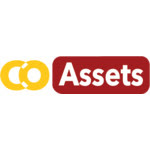
CoAssets Limited (CoAssets or the "Company") (ASX: CA8), a financial technology platform specialising in providing funding solutions for small to medium-sized enterprises (SMEs), is pleased to announce the launch of the CoAssets Stirling Fort Absolute Return Fund (CASFAR Fund or Fund) by its wholly owned Singapore based subsidiary CoAssets International Pte Ltd. The Fund will undertake collateralised lending and it aims to grow the Asset under Management (AUM) to S$100 million over the next five years.
The launch of the CASFAR Fund will give accredited investors an avenue to invest in the regional SME lending space. As the Fund principally engages in SME Bridging Loans, the loan tenures will generally be less than 12 months and Fund performance is unlikely to be affected by the equities or interest rate markets. The bulk of the portfolio will be made up of loans to SMEs that are able to pledge hard assets while the rest of the portfolio will be made up of loans to SMEs that allow the Fund to hold a charge over their shares, earnings, or contract receivables.
The appointed Fund Manager, Singapore based Stirling Fort Capital (Stirling), established in 13 April 2014, is a multi-family office with a proven track record in providing tailored and customised investment solutions. Stirling will assist CoAssets in the set up and operations of the Fund by proving the fund management services. Stirling is led by a highly accomplished management team who has accumulated a wide array of experience in the finance industry. CoAssets expects that together with Stirling, the expertise and investment techniques utilised will enable the Fund to take full advantage of investment opportunities as they arise.
CEO and Co-founder of CoAssets, Mr Getty Goh commented:
"We are constantly looking for ways to add value to our crowdfunding investor base. So far, we have more than 400,000 registered users from around the region and more than 50,000 of them are from Singapore. Based on our interaction with them, we realize that quite a number of them are accredited investors. Some of them are on the look out for higher returns and are currently underserved -- hence we see CASFAR as an opportunity for us to add value to that specific group of investors."
"On the other hand, we have been actively growing our corporate loan book since Sep 2015. In terms of corporate loans, we have deployed about S$18million in total, with an annualized weighted return of about 24% and default rate of less than 2%. Based on the last few year's track records, we are optimistic that we able to help CASFAR investors generate positive returns. Admitted, CASFAR is a new fund in a fairly competitive investment market. However, given our experience in using financial technology to raise funds and assess deals, we believe that this will be the edge that sets us apart from the other new entrants."
Related News

Shaun Conway
Founder and President at ixo Foundation
So far, not much has been written about treasury functions in the context of cryptographic utility tokens. see more
- 08:00 am
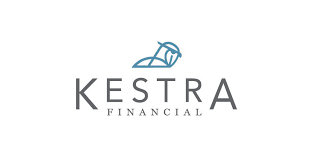
Industry-leading independent advisor platform, Kestra Financial, Inc. (Kestra Financial), today announced the addition of Merrick Financial Group.
Based in Merrick, N.Y., Merrick Financial Group was founded in 2006 by Eric G. Moore, a 21-year veteran of the financial services industry. Eric, along with his partner, Michael Blake, and associate, Allison Hudson, oversee the firm’s full range of wealth management services. Merrick Financial Group has a specialized focus on serving both active and retired members of the law enforcement community, a niche derived from Michael’s 27-year career in the NYPD.
“We founded our firm with the unwavering commitment to provide clients a top-quality level of service,” said Moore. “With that principle as our foundation, we chose to partner with Kestra Financial, knowing the firm’s robust technology platform and practice enrichment tools would ensure our clients are receiving superior service day in and day out.”
The advisors at Merrick Financial Group oversee $142 million in assets under management.
“Kestra Financial is dedicated to empowering sophisticated wealth management firms like Merrick Financial Group to grow their business,” said Daniel Schwamb, Senior Vice President of Business Development at Kestra Financial. “We’re proud to partner with Eric and his team on their next phase of business growth and are confident that our cutting-edge technology solutions and consulting services will propel the firm to the next level, while allowing the team to remain nimble enough to serve the unique needs of the law enforcement community.”
Related News
- 09:00 am
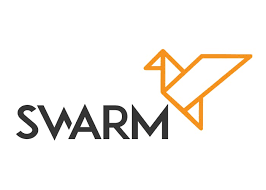
Swarm (www.swarm.fund), the blockchain for private equity, today announced that it has partnered with decentralized autonomous organization MakerDAO to integrate the Dai token into the Swarm platform. This will give Swarm’s community of accredited investors a greater capability to lock in crypto prices, using the world's first decentralized stablecoin on the Ethereum blockchain.
“When we connected with the MakerDAO team, we found them to be like-minded, community-focused technologists. Our cooperative relationship will provide new ways for our investors to create and protect their value,” said Philipp Pieper, CEO and Co-Founder of Swarm. “It removes what has been perceived as the risk and volatility of some crypto markets.”
Swarm investors will be able to lock in value using the Dai stablecoin in two phases. The first phase is live now and enables investing with Dai, which is pegged to the US Dollar. The second phase will allow investors to lock in the price of the crypto they invest on Swarm, with Bitcoin or Ethereum converted to Dai, locking in the price at the time of commitment to an investment, or automatically based on ceiling and floor prices set by the individual investor.
“Our mission at Maker is to harness the power of the blockchain to create a more level playing field and economic opportunities for individuals and institutions around the globe,” said Rune Christensen, CEO and co-founder of MakerDAO. “Integrating Dai into Swarm unlocks new levels of stability, power and access for their class of accredited investors.”
Under Swarm’s original three-tiered token model, investors would be able to exchange crypto or fiat for dollar-pegged Swarm SUN tokens, to then be used to invest in the funds on the platform. Those SUN tokens would then be converted into intelligent, SRC20 security tokens for each opportunity, giving the holders a tokenized version of the real-world assets behind the investment. The basic mechanics of that model remain, but with Dai tokens now immediately providing those stablecoin benefits for investors.
“When Swarm was first envisioned, the three-tier token model included the SUN stablecoin layer converting cryptos into a dollar-pegged coin for the deployment of capital into funds,” commented Timo Lehes, Co-founder and Chief Investment Officer. “The Dai stablecoin is everything we wanted SUN to be, and more. Maker has already established a DAO, built a clear backing structure for Dai, and are seeing rapid adoption, recently doubling their debt ceiling based on growing utilization of Dai.”
Swarm makes traditionally exclusive investment opportunities, such as private equity and hedge funds, inclusive for the Swarm by pooling together smaller investments into larger, institutional-sized blocks. Swarm gives fund managers access to capital from a new class of investors who want access to institutional-type investments, but don’t have the high minimums many institutional funds require. By leveraging blockchain technology, Swarm provides an entire platform from which businesses can create cryptocurrency-based enterprises with a wellspring of built-in funding.









